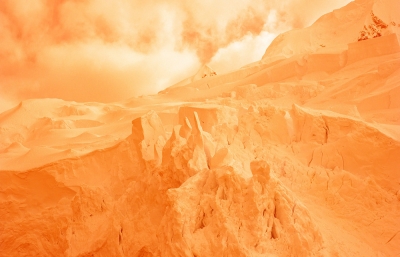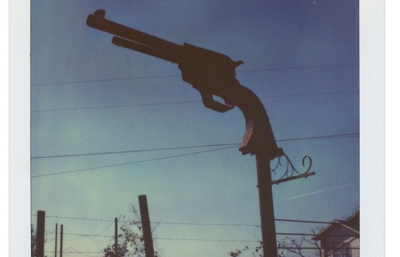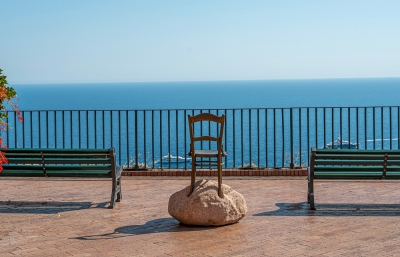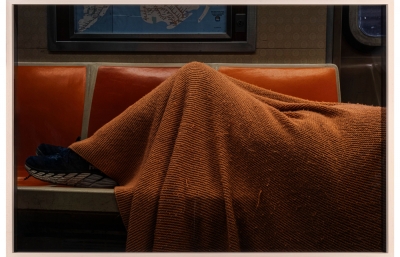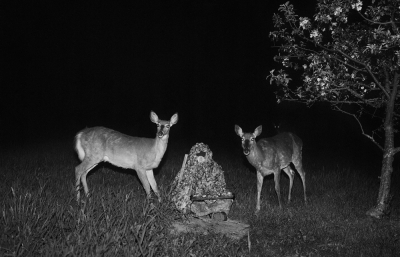
Vision Walk: Chicago
With ASHLEY OSBORN
We arE traveling around the country with VANS VISION WALKS, a series of workshops led by some of our favorite photographers in their home cities. This past weekend we spent the AFTERNOON with Ashley Osborn as he led participants on a walk through downtown Chicago.
"There's no other choice for me. This is what I'm doing for the rest of my life. I will do everything I have to do to make it work. There's no other option for me. I love it. I love every bit of my life every day now and I'm so grateful that I'm in a spot where I just feel bliss every day when I pick up a camera." Ashley Osborn's enthusiasm is contagious. "It's about energy for me," she explains. "That's literally it." Osborn discovered photography through a love of music. She saw how pictures could capture the energy of a live show and the energy of the subject and photographer into a visual medium. For a couple of hours last weekend, Osborn shared her passion with a group of photographers she led on a Vans Vision Walk around the streets of Chicago and to some of the spots she used to frequent when she was just starting to find her way as a music photographer.
Juxtapoz: What were the first photographs you remember having a big impact on you?
Ashley Osborn: I think getting issues of Alternative Press (AP) in middle and high school. That was when photography became more of a realistic thing to me that I really paid attention to. The photos that made me really want to pursue a career in photography were photos I saw of Paramore, Fall Out Boy, Panic! At The Disco and My Chemical Romance and all those emo bands when I was growing up. I was always in the music scene, I felt at home.
When did you first pick up a camera?
It was kind of accidental. When I was going to shows, I would always bring a camera into the crowd with me, and even though it was just a point-and-shoot, I would literally make my way up to the front or wait in line all day just to be able to take good photos up close. In 2009 I was at a Paramore show and I met a photographer who was in the photo pit and I was on the barricade just attending the show. I started talking to him about how he got a photo pass and what he was doing and he explained to me that he was shooting for AP and after that, I was set on the idea. I knew this was what I was going to do with the rest of my life; document music and be around music and art and create every single day. That was all I wanted. So I saved up all my money, graduated high school and bought my first DSLR camera.
"I feel that photography and creativity are all I know. I never felt that I had an identity until I picked up a camera and the more I'm around music, the more I feel grounded to who I actually am."
When you first started bringing a camera to these shows, what were you doing with the photos?
That's how I remembered those moments. Music was kind of my escape as a kid. I’m not gonna sob-story it, but I had a rough childhood. I didn't have any friends, I was the weird emo kid and going to shows was the only community I really had.
So to me, taking photos of those shows was just how I remembered it and I put them on Myspace and I made a pro Flickr account and that was my portfolio. It was all terrible photos, but to me it meant everything. It was like I was really getting serious and being able to share my work was how it all started because kids actually cared which was really surprising to me because I was just doing it for fun.
Did you teach yourself how to shoot?
Yeah, once I got my first DSLR, a Canon Rebel XS, I remember taking photos of my friends and I would always take it to school, to shows and just practice. Even if it was on auto mode, I took it into Photoshop later and looked at all the settings and compared them to other photos and just learned that way. I never took a photo class in my life. I just picked it up and I loved it, a fun hobby turned accidental life-long passion career.
Well, not that accidental. You decided that was what you were going to do right?
Yeah. I feel lucky though.

Did you assist for anyone or get help from anyone along the way?
No. There was one photographer in Chicago who was really cool. He would always let me borrow his lighting equipment to do photo shoots. I had never used a flash, never used strobes, so that was kind of how I started to learn. It was kind of hard in Chicago because a lot of the more experienced photographers I was around were all really old guys. There were times I felt really looked down upon. I didn't always feel like I fit in with the Chicago crowd because no one really took me seriously.
I just kind of did it all myself. I just put the puzzle pieces together and thought, "Okay, well how am I actually going to connect with artists? How am I going to connect with managers? How am I going to connect with record labels and really start building connections face-to-face?" I realized I couldn't keep shooting live, I had to find a reason or make a reason to get face-to-face with these artists and really start making connections. So I started a music magazine. My friend McKenzie co-founded it with me while we were sitting at Chili’s one day. I was the editor in chief, Mckenzie was the head writer, and I asked my friend Cara who interned at AP to do all the art. And it was amazing, and in Highlight, which is what we called the magazine, I had an excuse to shoot with any artist I wanted to and that was kind of how it all started.
When did it feel like it was starting to work out, that you might be able to make it as a photographer?
I feel that photography and creativity are all I know. I never felt that I had an identity until I picked up a camera and the more I'm around music, the more I feel grounded to who I actually am. I feel very grateful every day for the fact that I get to incorporate the two things that I love the most into my everyday life. So there's not really a choice. I will be doing this for the rest of my life and I refuse to do anything else but as far as the longevity of my career goes, I don't necessarily want to be touring forever.

I would like to get to a spot where I'm teaching. That's one of my biggest dreams so when I get to do things like this and work with Vans and be around all these kids, I see so much of who I was five, ten years ago. It is so cool. It keeps me so grounded and it reminds me that there is such a bigger picture to all of what I'm doing. There's no other choice for me. This is what I'm doing for the rest of my life. I will do everything I have to do to make it work. There's no other option for me. I love it. I love every bit of my life every day now and I'm so grateful that I'm in a spot where I just feel bliss every day when I pick up a camera. I've worked through so many things. I will work on so many obstacles with my health and as a woman, and as a young creative. It's hard doing it by yourself and being a freelancer, let along living in Los Angelus. It's crazy. It's a crazy world out there. I'm gonna keep hustling and I'm gonna keep grinding it out until the day I die. There's no other choice for me. This is what I love. It's my passion.
You said that photography made you really feel like more comfortable with who you were. What is it about it that makes you feel that way?
On a very real note, this is where I'm at right now. We are in a female empowerment movement and my favorite part of my job every single day is that when I get to work with people, especially women, there's no better feeling than taking a photo of someone and automatically seeing their boost in self-confidence. The way I look at it is it's a healing thing. I'm very into energy and I'm very into trusting my intuition and in being able to read a person the second I look at them.
There's no better feeling in the world to me than being able to heal somebody through my art and being able to see who they are as a person and show them how I see them in such a beautiful light. I know there's no better feeling than when somebody takes a photo of you and you love how you look in it. I'm actually one of the most self-conscious people when it comes to my appearance and very few people know that about me. I encounter so many people who are very self-conscious.
What are you looking for when you photograph someone?
Literally, I’m looking into their soul. I want to meet you. I want to talk to you. I want to know who you are and when I start photographing somebody, I feel. Again, I'm really intuitive and I know how people are feeling and I feel that energy and I feel that I'm really good at reading people and feeling out a room. If I start shooting with somebody, I can feel how uncomfortable they are.
When someone's overwhelmed, you want to try to isolate them a bit and make them calm down. When somebody is really tired, you want to be energetic and you want to get the mood up, and you want to play exciting music. You want to feel out their energy first. That's the first thing I do, is being able to read a room and being able to feel how someone else is feeling in that moment because that's how their gonna come off in the photos. So you either have to embrace it or try to change it. You don't really have much of a choice. Nothing else matters. If you're not connecting with the person you're photographing, you're not gonna get a good photo. You could have the best equipment. You could have 20 assistants. You could have a whole lighting rig but if you don't know who you're photographing, like no.
I feel like people don't focus on what actually matters. Human connection is everything. If you don't connect with the person you're photographing, something is wrong. If people aren't appreciative of the energy you're giving and the art you're trying to make, you're not going to make art. You're not going to make a good photo. There really are so many other aspects that I feel like people don't talk about. Maybe it's just my own weird, hippy, spiritual way of doing it but it's working for me and I'm very grateful for the way that I do things. I'm very grateful for the artists who are appreciative of my artistry and work with me on a daily basis. Because it's hard. It's really hard, especially on tour. I'm so lucky that I'm stuck with such incredible people who allow me to read their energy and document how they're feeling every single day no matter the circumstances. There are days where people are bummed out. There are days when people are tired, they don't want to get out of bed. It's my job to document them in their worst and their best. So it's about energy for me. That's literally it. I would rather photograph somebody on a really, really bad day when they're feeling at their lowest and take them and photograph them in their living room than take a superstar and photograph them in a really fake setting where they're not being genuine at all. To me, that's not what it's about. It's about capturing someone's true essence and emotion in that very moment that you have them.




